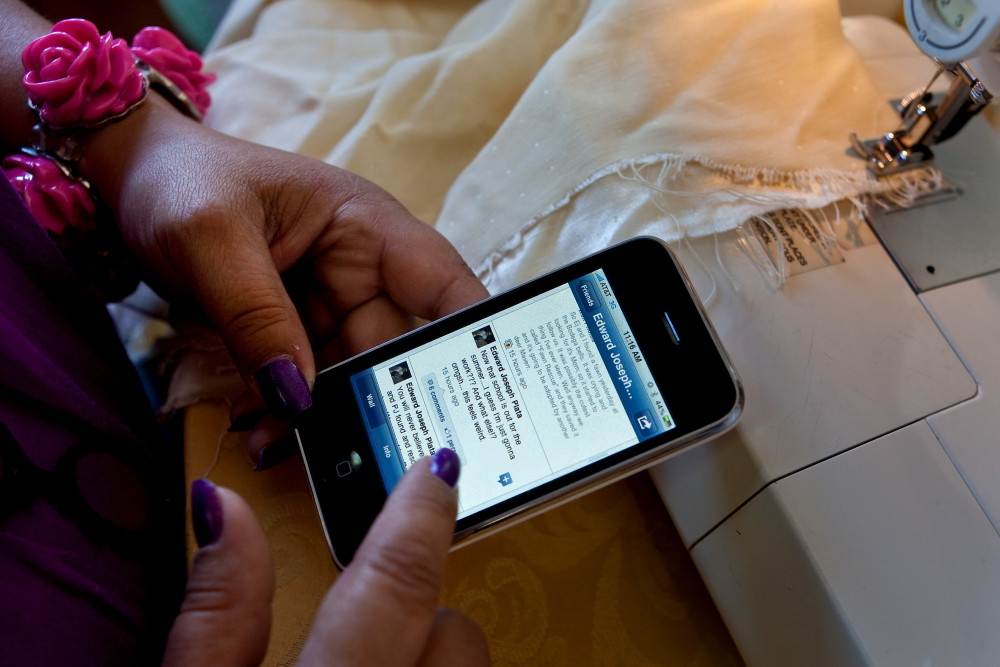By Ann Marie van den Hurk
Lexington Herald-Leader.
As social media becomes more and more integrated into everyday business communications, the question of who owns social media arises in a couple of different forms.
The question probably isn’t meant in terms of which department in your business owns social media, but does your business own its own social media accounts, and what about employee social media accounts?
Those are questions you need to know answers to in order to avoid headaches later. There is a lot of confusion regarding who legally owns social media.
None of us, including businesses, own social media accounts. The account is owned by the social media platform such as Facebook. What you own is the content you put on it, but you license it to the platform pretty broadly, said Alicia Dearn, a real estate and business attorney.
According to the Pew Research Center’s Social Media Update 2014, 52 percent of online adults use two or more social media sites, up from 42 percent in 2013.
More likely than not, your employees have social media accounts and use them daily. You may have employees who are more social-savvy than others. You may have employees engaging customers on social media on your behalf under their own handles. Or they may have created handles such as “@janedoeyourcompanyname.”
This poses a challenge for businesses, especially as more and more customer interaction is taking place on social media.
Autumn Witt Boyd, a business lawyer, says that the individual employee would typically own the social media account if they set it up before joining the company.
It’s trickier if the employee set it up while employed for a company, especially if the handle is @janedoeyourcompanyname since there are no laws that would cover ownership, she said.
Ownership of social media often comes down to company policies, or whether the employee signed an agreement about who owns any social media accounts.
A business cannot control an employee’s private account, but what businesses can provide are guidelines and suggestions on usage and outline potential repercussions, says Victorio Milian, a human resources consultant. Training sessions and references materials help everyone in the organization understand the use of social media.
An example shared by Nader Anise, a lawyer and marketing expert, is the 2012 Eagle vs. Morgan case where Linda Eagle was terminated and her former employer locked her out of her LinkedIn account, replacing her photo with that of her replacement.
The court ruled in her favor saying that there is no clear ownership if there is no policy already in place.
Donna Ray Berkelhammer, a North Carolina-based attorney, shared the example of PhoneDog and a former employee who went to work for a competitor. He changed his @PhoneDog_Employee Name to his own name when he left, taking a large Twitter following with him.
The court found that the @PhoneDog_Employee Name Twitter accounts and associated passwords could constitute trade secrets and that the actions of the former employee, in taking the Twitter followers, could be interfering with PhoneDogs’ economic relationship with its followers and merchants. The core of the case was who owned the Twitter account and whether the former employee had improperly taken the property of his employer when he changed his name on the account and used it to work for a competitor.
The bottom line for businesses is to have social media policies in place and built into employment contracts. While you can’t control employees’ private accounts requesting passwords, etc., you can guide them in proper usage to insure trade secrets or other company information is not shared.
If employees are expected to use business branded social media accounts, then the terms need to be stated in contracts and policies and the businesses should have access to those account passwords.
For employees, make sure you know if your employer has social media policies in place. And it may be a good idea to keep separate accounts.
___
ABOUT THE WRITER
Ann Marie van den Hurk, an accredited public relations professional, is principal of Mind the Gap Public Relations and author of “Social Media Crisis Communications.”














































































































































































































































































































































































